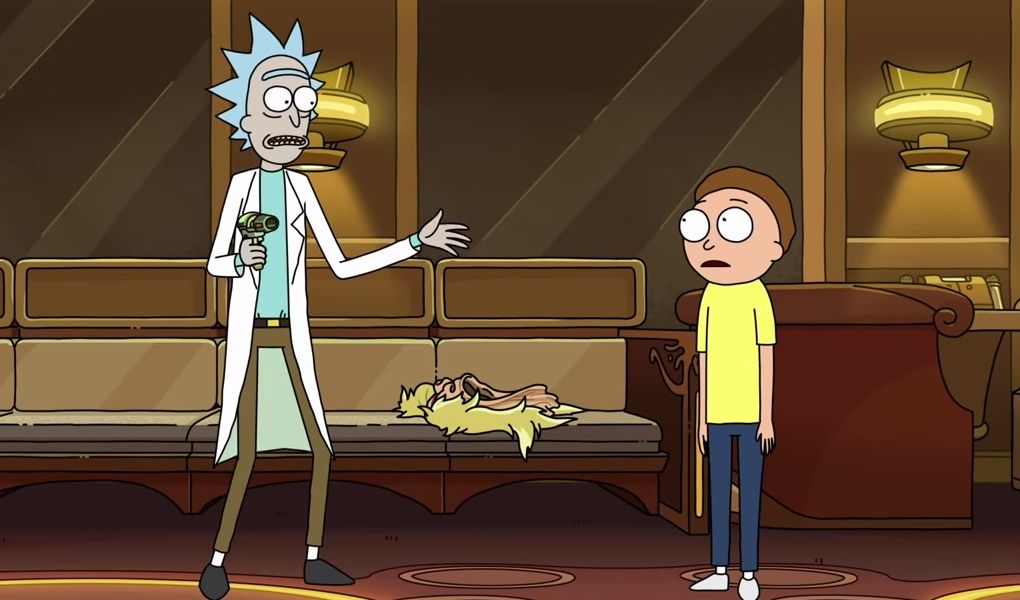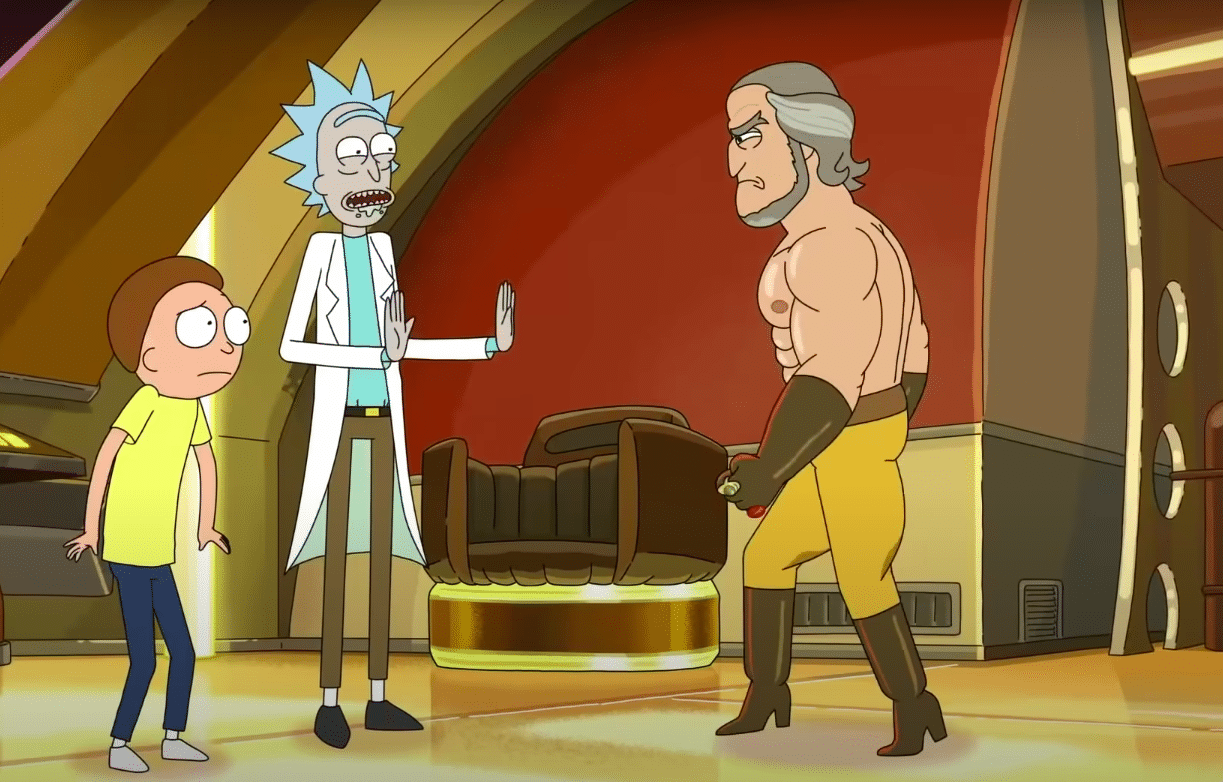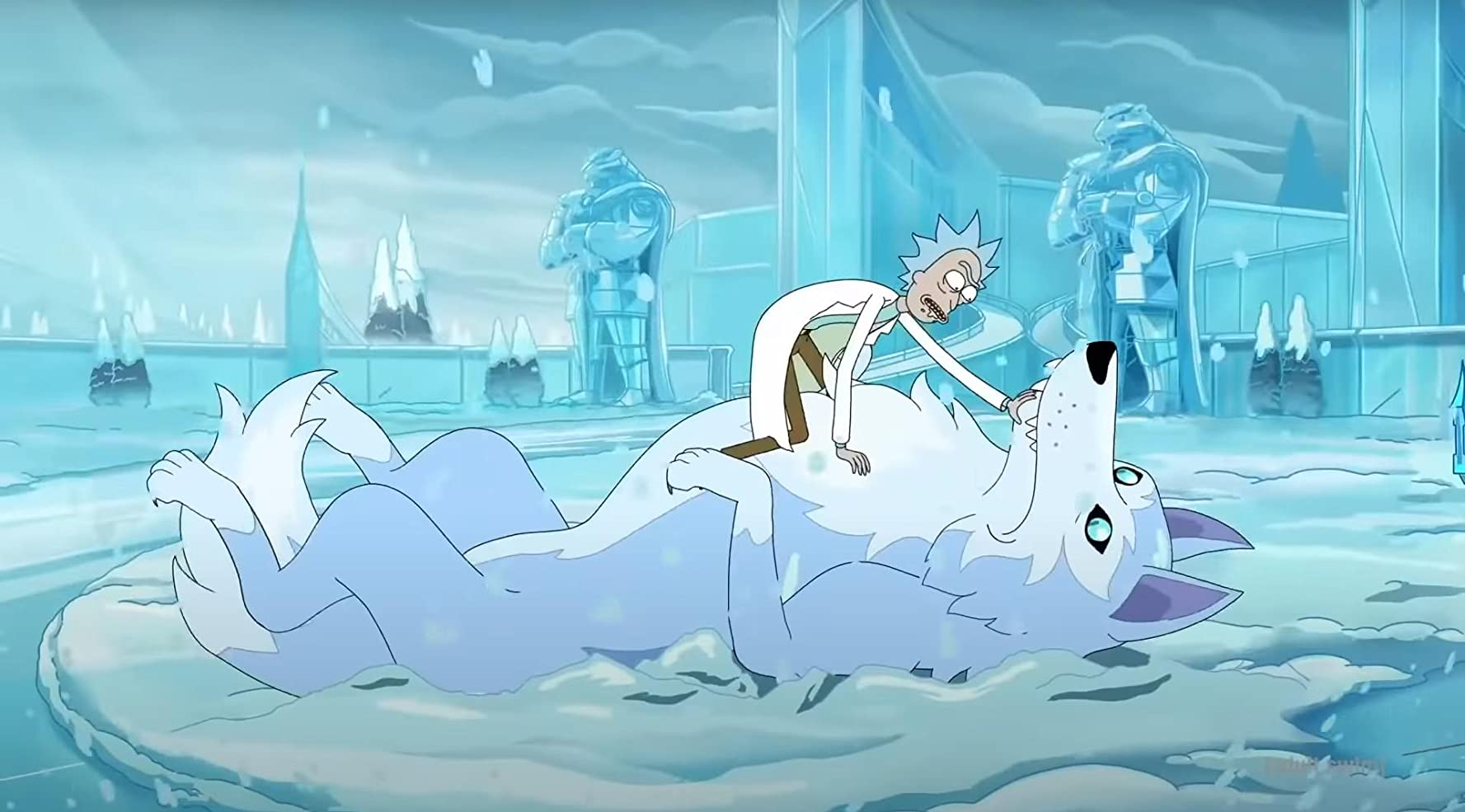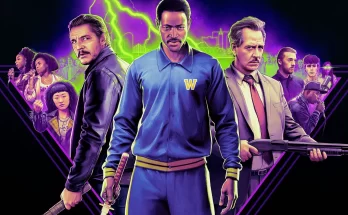Want to hear more from the actors and creators of your favorite shows and films? Subscribe to The Cinema Spot on YouTube for all of our upcoming interviews!
Managing editor & film and television critic with a Bachelor's of Arts in English Literature with a Writing Minor from the University of Guam. Currently in graduate school completing a Master's in English Literature.
We’d tell you what happens but don’t know how to. Adult Swim‘s hit animated science fiction comedy Rick and Morty returns from nearly a five-month hiatus.
The sixth episode of the fourth season is titled “Never Ricking Morty;” it is directed by Erica Hayes and written by Jeff Loveness.
If you haven’t caught up with the show, do so now or read at your own peril. Some spoilers ahead!
The episode primarily takes place in outer space with the titular characters aboard a train. Matters turn for the worse when Rick Sanchez and Morty Smith (both voiced by Justin Roiland) discover the train is literally a literary device. While the episode does nothing much for character development, it tackles the anthology genre, themes of storytelling, and the capitalist system that sells these to the public for profit.
This pokes fun at the way the series tells different stories all at once, like it had in previous episodes such as “Rixty Minutes” (S01E08), “Interdimensional Cable 2: Tempting Fate” (S02E08), and “Morty’s Mind Blowers” (S03E08). This trope has been prominent in this series and has appeared before in co-creator Dan Harmon’s other hit comedy sitcom Community with episodes like “Paradigms of Human Memory” (S02E21) and “Curriculum Unavailable” (S03E19). (Like Community, Rick and Morty tends to be meta in the way its stories are told.)
On the train, the characters find themselves encountering numerous literary techniques.
- Cameos — there are brief appearances from Jesus Christ and a popular culture roster of other familiar fictional characters including Wolverine, Yoda, a Care Bear, and the main characters of VeggieTales. There are also cameos from characters from the show: Snowball, Tammy Gueterman and her romantic partner Phoenixperson (as well as his former self Birdperson), Gazorpians, and Abradolf Lincler.
- Bechdel test — in one scene, Morty tries to create a story involving his sister Summer Smith (Spencer Grammer) and Beth Smith (Sarah Chalke), conversing about subject matter that has nothing to do with a male character.
- Continuity — the stories taking place in the train are connected by a central theme: Rick Sanchez; however, the outer space acts as an actual deviation from the story, where any character who leaves the train then experiences a pseudo-reality.
- Parody — the episode’s villain Story Lord is a name that takes jabs at Starlord, a character from the Guardians of the Galaxy films. The animated series has always parodied popular characters like Emmett “Doc” Brown, Marty McFly, Freddy Krueger, etc.
- Plot twist — nearly every story in every book, film, and television series has a surprising reveal, and this episode intentionally has a terrible plot twist to convey the absurdity of plot twists. The train turns out to be a gift shop from the Citadel and the stories that took place aren’t even real.
- “Beyond the fifth wall” — stories like Rick and Morty, Community, Deadpool, and others tend to look at and engage with their audience as if to conjure a response.
- Character development — the episode does nothing for the growth of our characters and is just a neat story to tell on its own.
The episode critiques how stories are mass-produced and sold to the general public. In its final scenes, Rick tells Morty to buy more trains so the Citadel can make profit. Also, Story Lord has meters in his lair that gauge the five levels of storytelling: narrative energy, marketability, broad appeal, relatability, and story potential. The antagonist’s plan fails when the scientist and his grandson confess their love for the Bible‘s Savior.
“Never Ending Morty” shows the ridiculousness of storytelling by deliberately telling a story so asinine that the consumer wants to give up interest, and the crew (cast, animators, writers, directors, etc.) wants this to be the case to prove that point. Nothing needs to make sense, and instead of having set standards, there should be no rules whatsoever. Even the rule “there can be no destination without a journey” (as per Story Lord) rejects Joseph Campbell’s theoretical structure of the monomyth, that is, the heroic quest. With that said, the latter half of Rick and Morty Season 4 continues the series with promise!
10/10
What do you think? Have you seen Rick and Morty yet? If not, do you plan to? Let us know! For more Rick and Morty & animation-related news and reviews follow The Cinema Spot on Twitter (@TheCinemaSpot) and Instagram (@thecinemaspot_).
Rick and Morty Season 4 is now out on Cartoon Network’s nighttime program Adult Swim!
Managing editor & film and television critic with a Bachelor's of Arts in English Literature with a Writing Minor from the University of Guam. Currently in graduate school completing a Master's in English Literature.








15 Comments on “‘Rick And Morty’ Midseason 4 Premiere Review – “Never Ricking Morty””